Resources
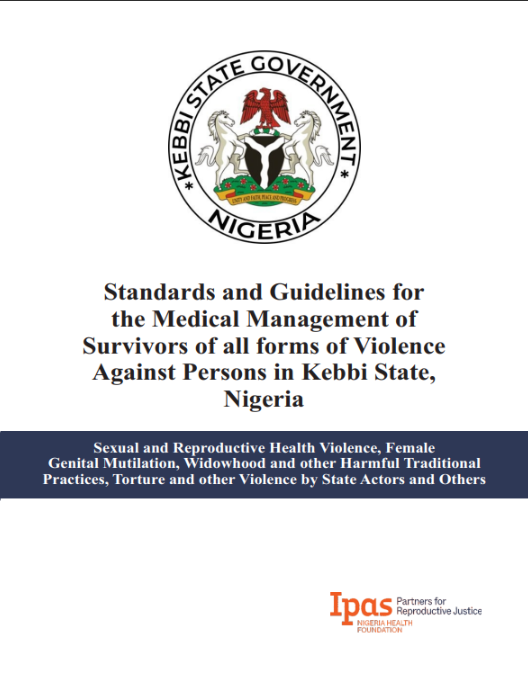
The birth of the VAPP Act 2015 paved the way for state assemblies to commence the process of domesticating it to contextual realities of their respective domains. Kebbi State achieved this on 27th of July 2022, when the Executive Governor, Senator Abub …
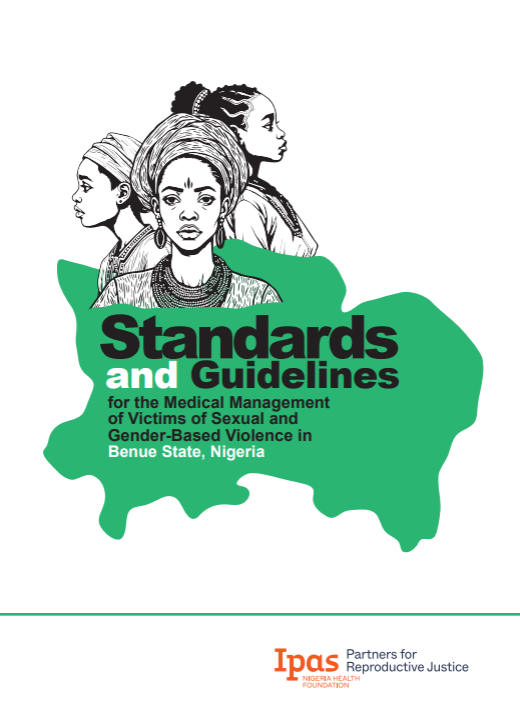
The enactment of the VAPP Act 2015 paved the way for state assemblies to begin the process of domesticating it to suit the contextual realities of their respective regions. Benue State achieved this on 28 May 2019, when Governor Samuel Ortom assented t …

The Violence Against Persons Prohibition Act – VAPP Act enacted in 2015, is a bold move by the government to redefine the way gender-based violence is handled in Nigeria. First introduced to the National Assembly in 2002, several years of advocacy and …
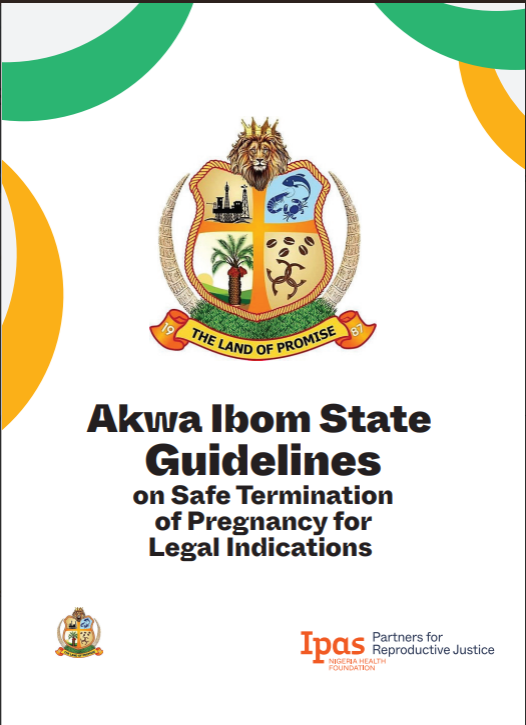
Maternal Mortality refers to death due to complications from pregnancy or childbirth. From the year 2000 to 2020, the Global Maternal Mortality ratio (MMR) declined by 34 percent from 339 deaths to 223 deaths per 100,000 live births, according to UN in …
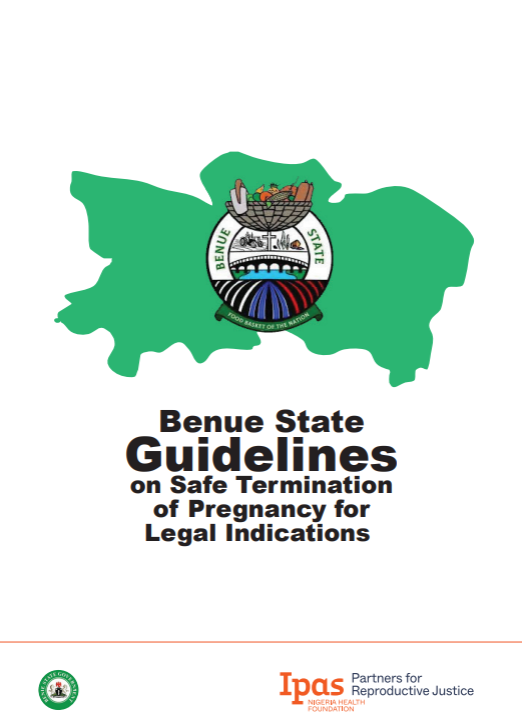
Globally, the maternal mortality ratio declined by 44 per cent between 1990 and 2015. The total number of maternal deaths around the world dropped from about 532,000 in 1990 to an estimated 303,000 in 2015. This equates to an estimated global maternal …
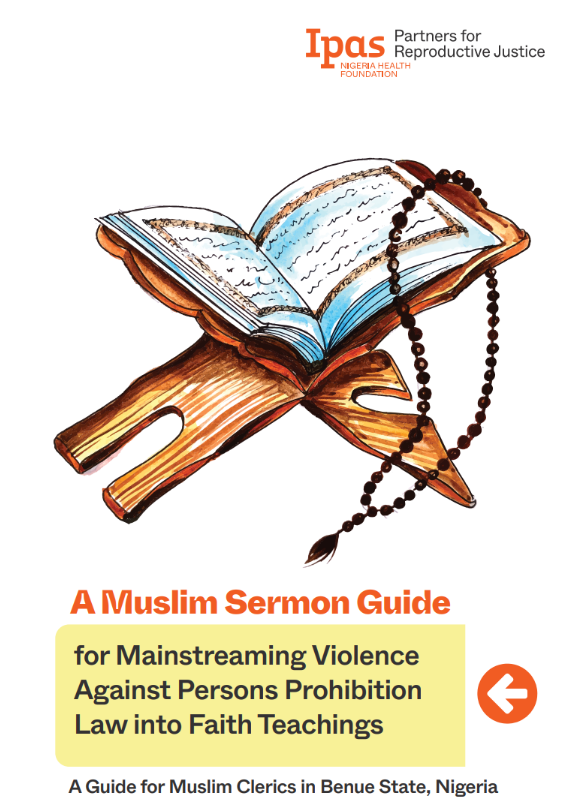
In May 2019, the Benue State House of Assembly passed a significant law known as the Violence Against Persons (Prohibition) Law, 2019. Signed into law by the Governor of Benue State, it took effect on May 28, 2019. This legislation represents a vital m …
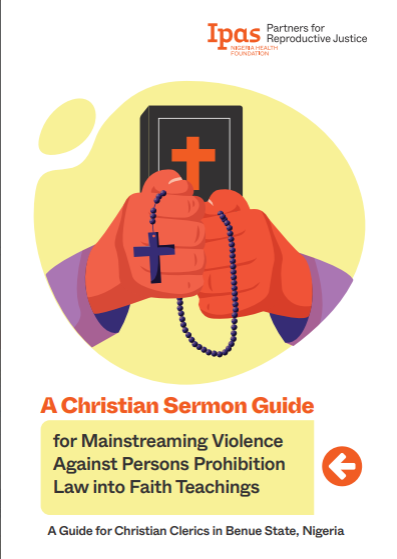
In May 2019, the Benue State House of Assembly passed a significant law known as the Violence Against Persons (Prohibition) Law, 2019, which was signed by the Governor of Benue State and took effect on May 28, 2019. This law aims to prohibit forms of v …

Nigeria has a rapidly growing population, with current population estimates of over 180 million, out of which about 46 million are Women of Reproductive Age (WRA). With a total fertility rate (TFR) of 5.3 in NDHS 2018, low level of FP utilisation is a …
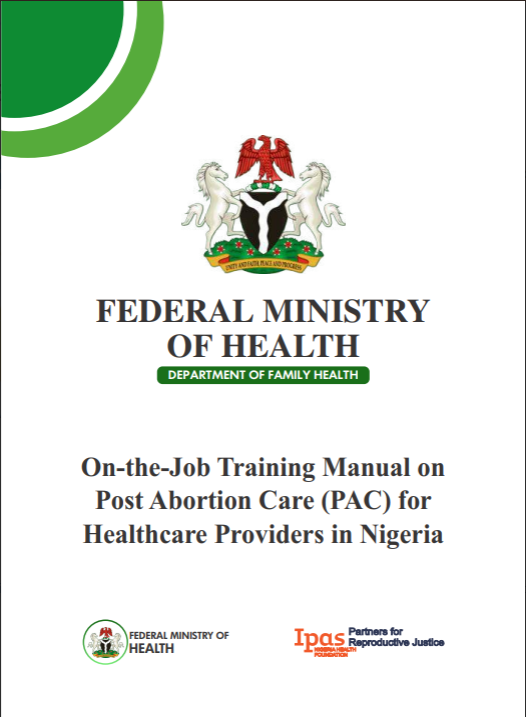
Re-training medical professionals can be challenging for governments and partners alike, especially in resource constrained settings or non-mainstream subjects. The formal classroom training is costly and disrupts routine activities which further compo …
Despite abortion being legally restricted and permitted only to save a woman’s life, it remains widely practiced, often in unsafe conditions by untrained providers and quacks. Legal and policy barriers, limited access to safe abortion services, social stigma, inadequate reproductive health education, and pervasive social stigma drive many women to seek unsafe abortions. In the last 25 years, Ipas has built evidence showing the urgent need to save women’ life and crash maternal mortality. Yet, because safe abortion care remains hidden in secrecy and stigma, many women procure unsafe procedures, costing their lives and fueling preventable deaths.
This learning brief showcases successes and gaps that require strengthening to overcome procurement barriers, supply-chain inefficiencies, and limited awareness among health providers as well as government stakeholders that continue to hinder access to …

Ipas Nigeria Health Foundation actively advocates for equitable health access for Persons with Disabilities (PWDs). Collaborating with DisabilityLed Organizations (DLOs) and Community-Based Organizations (CBOs) in states including Bauchi, Jigawa, Gombe, Ogun, Anambra, and Akwa Ibom, Ipas supports the development and domestication of national and state disability policies.
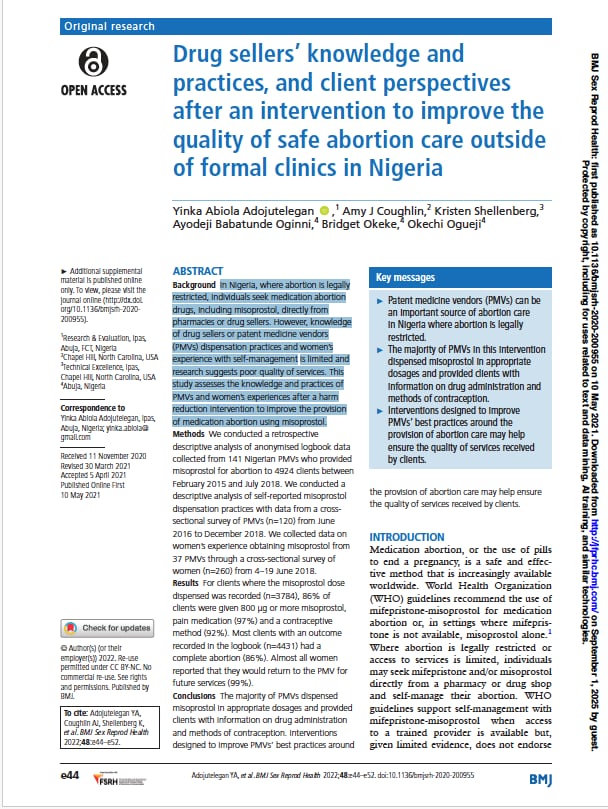
In Nigeria, where abortion is legally restricted, individuals seek medication abortion drugs, including misoprostol, directly from pharmacies or drug sellers. However, knowledgeof drug sellers or patent medicine vendors(PMVs) dispensation practices and women’sexperience with self-management is limited and research suggests poor quality of services. This study assesses the knowledge and practices ofPMVs and women’s experiences after a harm reduction intervention to improve the provision of medication abortion using misoprostol.
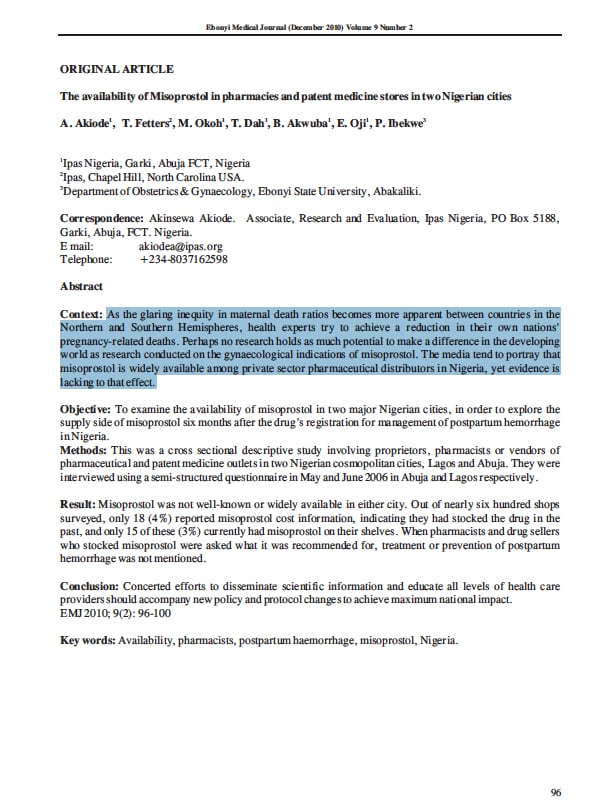
As the glaring inequity in maternal death ratios becomes more apparent between countries in theNorthern and Southern Hemispheres, health experts try to achieve a reduction in their own nations’ pregnancy-related deaths. Perhaps no research holds as much potential to make a difference in the developing world as research conducted on the gynaecological indications of misoprostol. The media tend to portray that misoprostol is widely available among private sector pharmaceutical distributors in Nigeria, yet evidence is lacking to that effect.
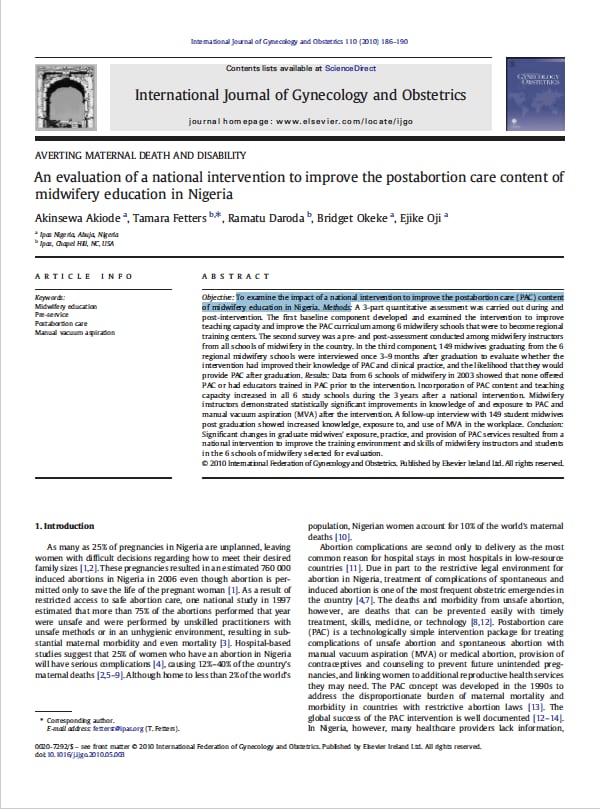
To examine the impact of a national intervention to improve the postabortion care (PAC) content of midwifery education in Nigeria.
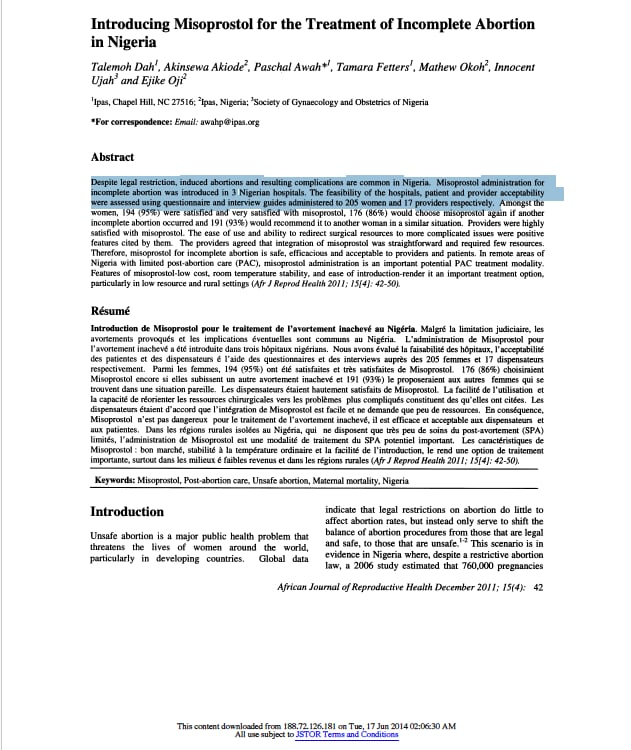
Despite legal restriction, induced abortions and resulting complications are common in Nigeria. Misoprostol administration for incomplete abortion was introduced in 3 Nigerian hospitals. The feasibility of the hospitals, patient and provider acceptability were assessed using questionnaire and interview guides administered to 205 women and 17 providers respective
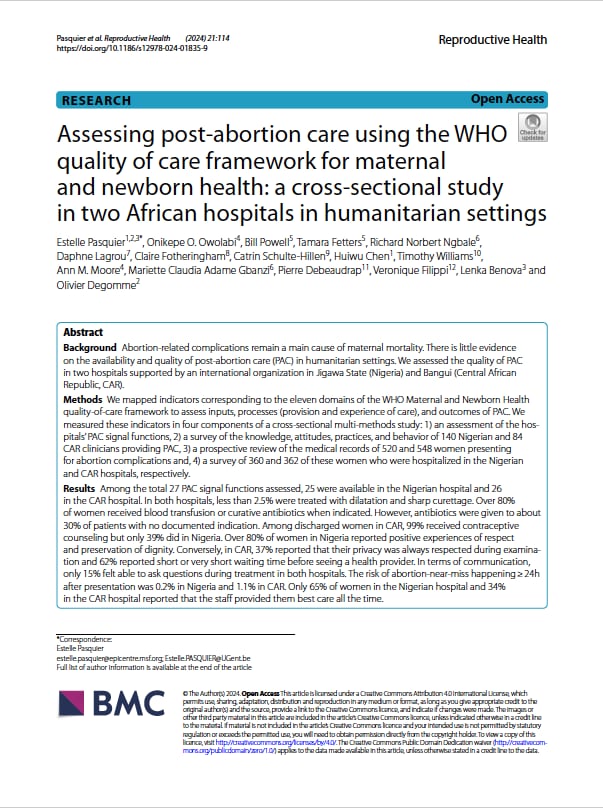
Abortion-related complications remain a main cause of maternal mortality. There is little evidence on the availability and quality of post-abortion care (PAC) in humanitarian settings. We assessed the quality of PAC in two hospitals supported by an international organization in Jigawa State (Nigeria) and Bangui (Central African Republic, CAR).
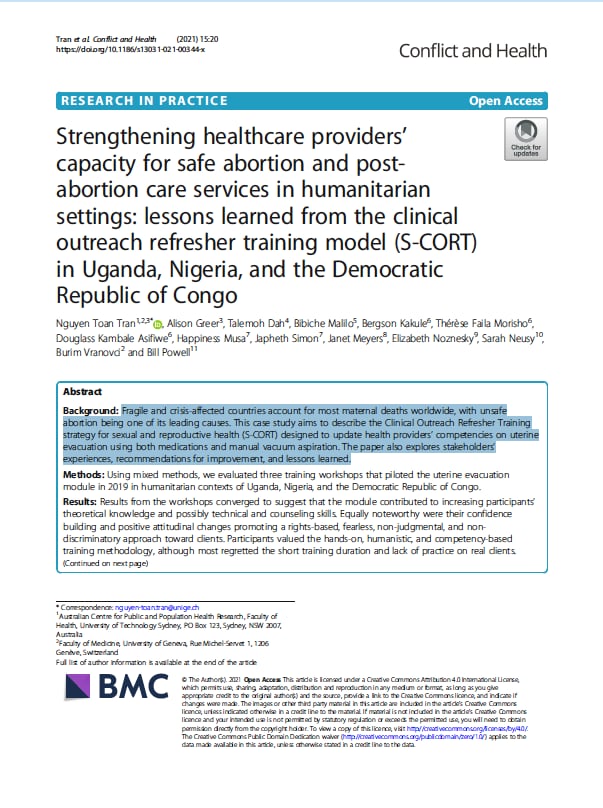
Fragile and crisis-affected countries account for most maternal deaths worldwide, with unsafe abortion being one of its leading causes. This case study aims to describe the Clinical Outreach Refresher Training strategy for sexual and reproductive health (S-CORT) designed to update health providers’ competencies on uterine evacuation using both medications and manual vacuum aspiration. The paper also explores stakeholders’ experiences, recommendations for improvement, and lessons learned.
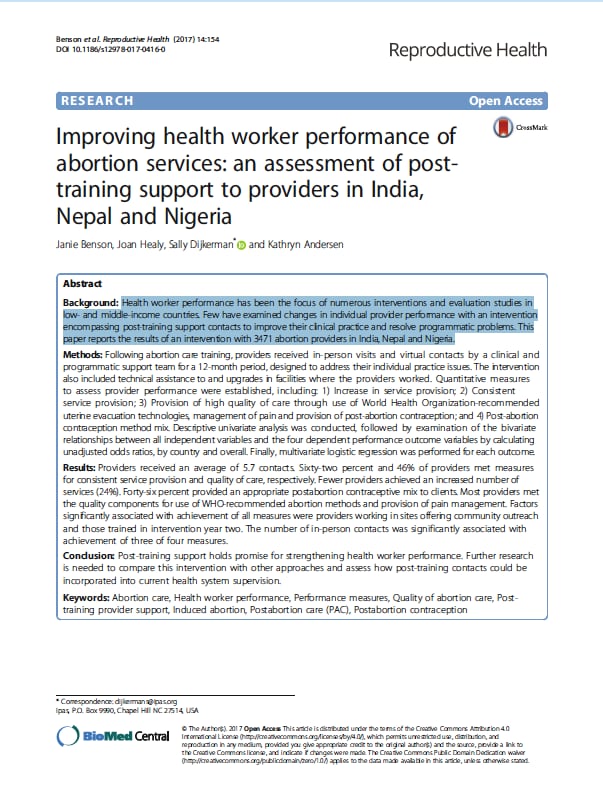
Health worker performance has been the focus of numerous interventions and evaluation studies in low- and middle-income countries. Few have examined changes in individual provider performance with an intervention encompassing post-training support contacts to improve their clinical practice and resolve programmatic problems. This paper reports the results of an intervention with 3471 abortion providers in India, Nepal and Nigeria.
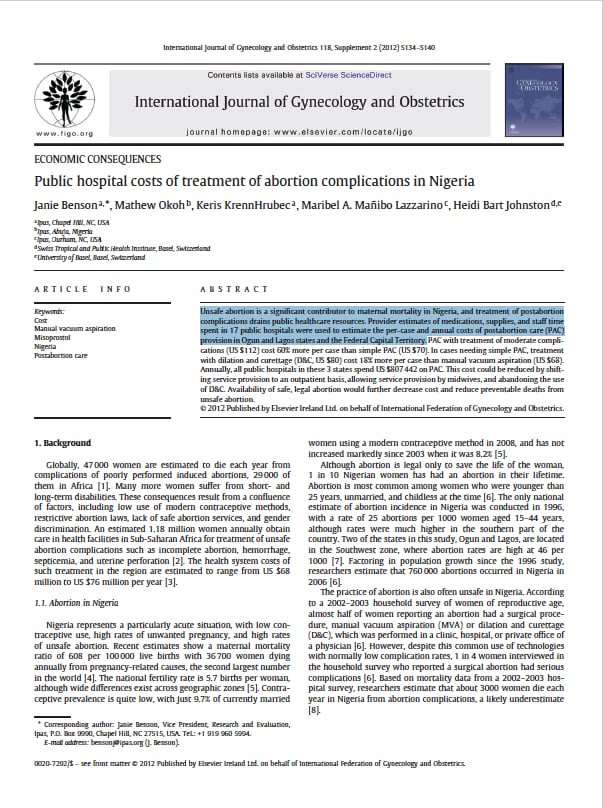
Unsafe abortion is a significant contributor to maternal mortality in Nigeria, and treatment of postabortion complications drains public healthcare resources. Provider estimates of medications, supplies, and staff time spent in 17 public hospitals were used to estimate the per-case and annual costs of postabortion care (PAC) provision in Ogun and Lagos states and the Federal Capital Territory.
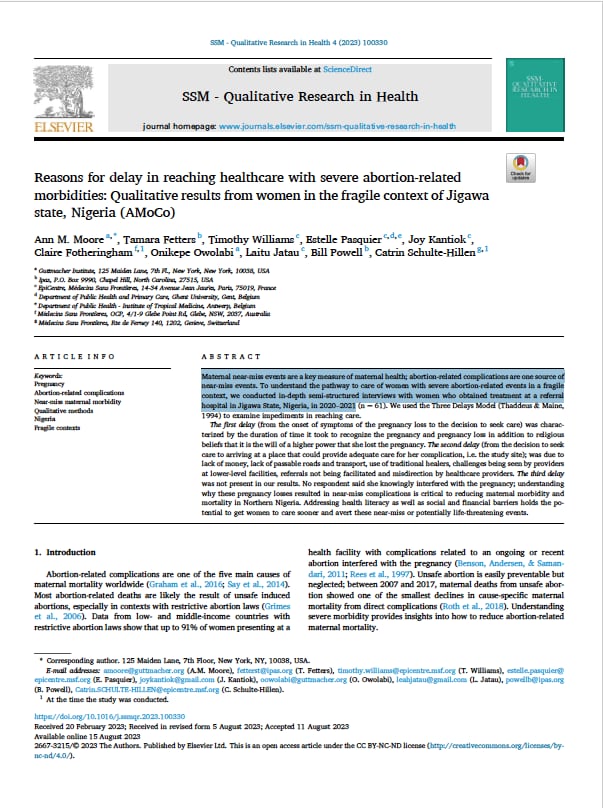
Maternal near-miss events are a key measure of maternal health; abortion-related complications are one source of near-miss events. To understand the pathway to care of women with severe abortion-related events in a fragile context, we conducted in-depth semi-structured interviews with women who obtained treatment at a referral hospital in Jigawa State, Nigeria, in 2020–2021
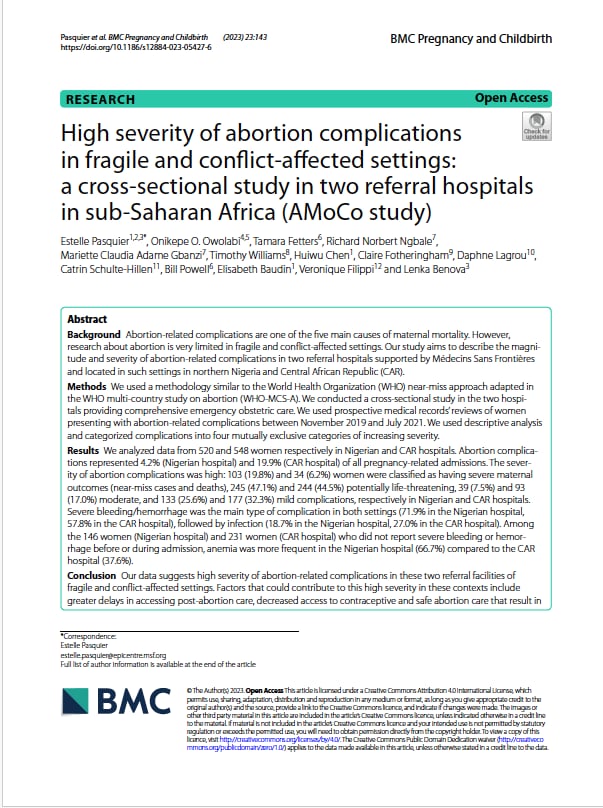
Abortion-related complications are one of the five main causes of maternal mortality. However, research about abortion is very limited in fragile and conflict-affected settings. Our study aims to describe the magnitude and severity of abortion-related complications in two referral hospitals supported by Médecins Sans Frontières and located in such settings in northern Nigeria and Central African Republic (CAR).

This mixed-methods study assesses abortion incidence and unsafe abortion burden in Borno State, Nigeria.
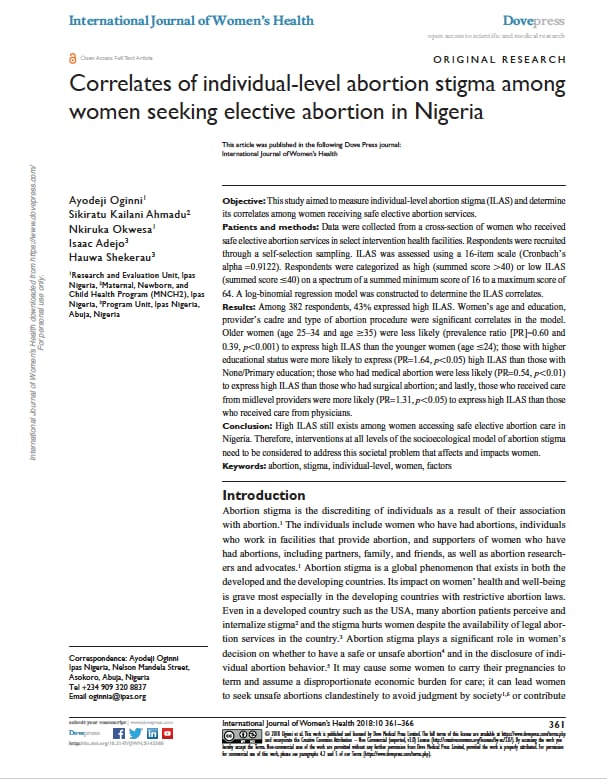
This study aimed to measure individual-level abortion stigma (ILAS) and determine its correlates among women receiving safe elective abortion services.
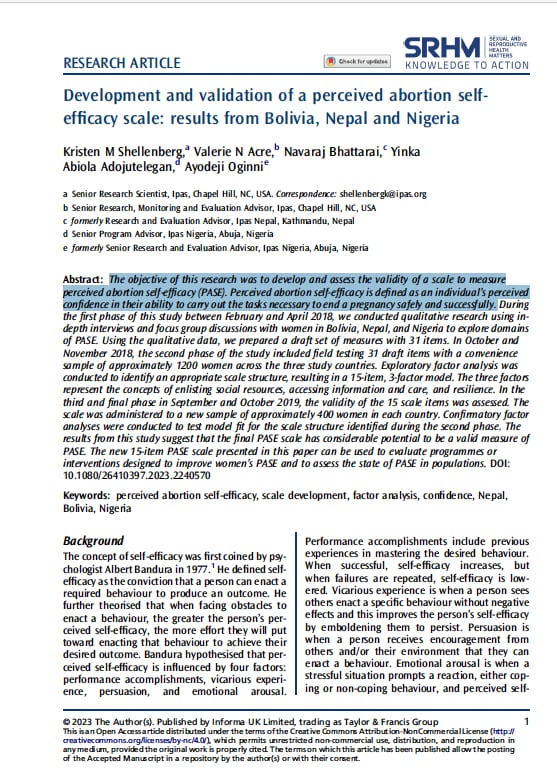
The objective of this research was to develop and assess the validity of a scale to measure perceived abortion self-efficacy (PASE). Perceived abortion self-efficacy is defined as an individual’s perceived confidence in their ability to carry out the tasks necessary to end a pregnancy safely and successfully.
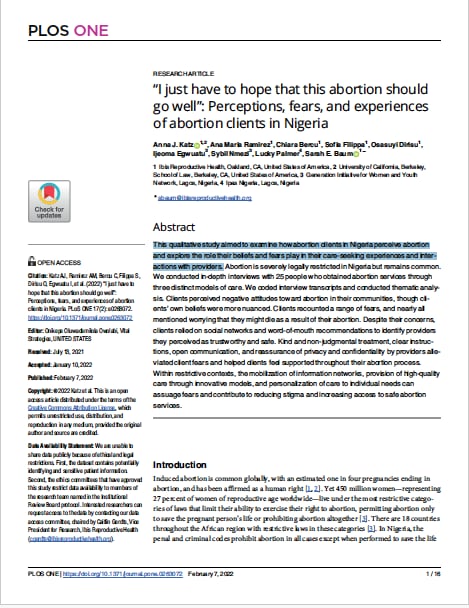
This qualitative study aimed to examine how abortion clients in Nigeria perceive abortion and explore the role their beliefs and fears play in their care-seeking experiences and interactions with providers.
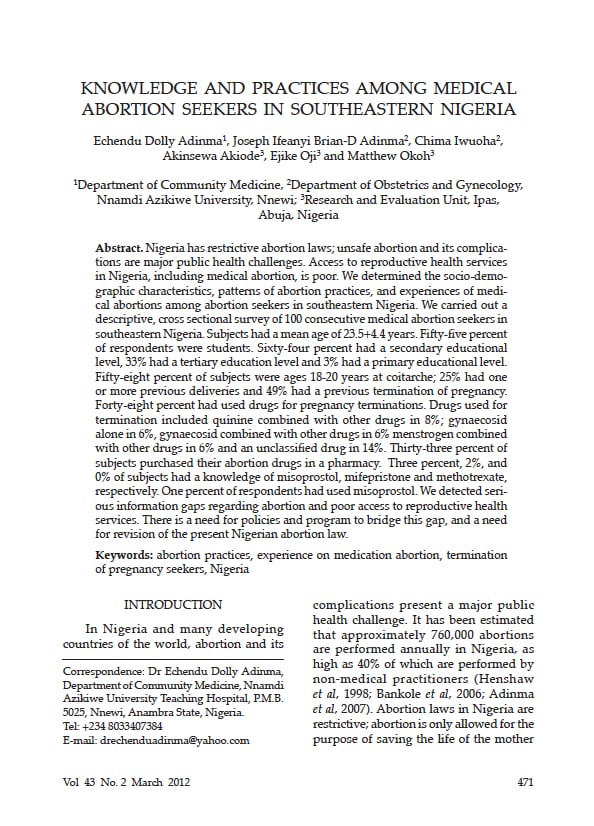
Nigeria has restrictive abortion laws; unsafe abortion and its complications are major public health challenges. Access to reproductive health services in Nigeria, including medical abortion, is poor. We determined the socio-demographic characteristics, patterns of abortion practices, and experiences of medical abortions among abortion seekers in southeastern Nigeria.
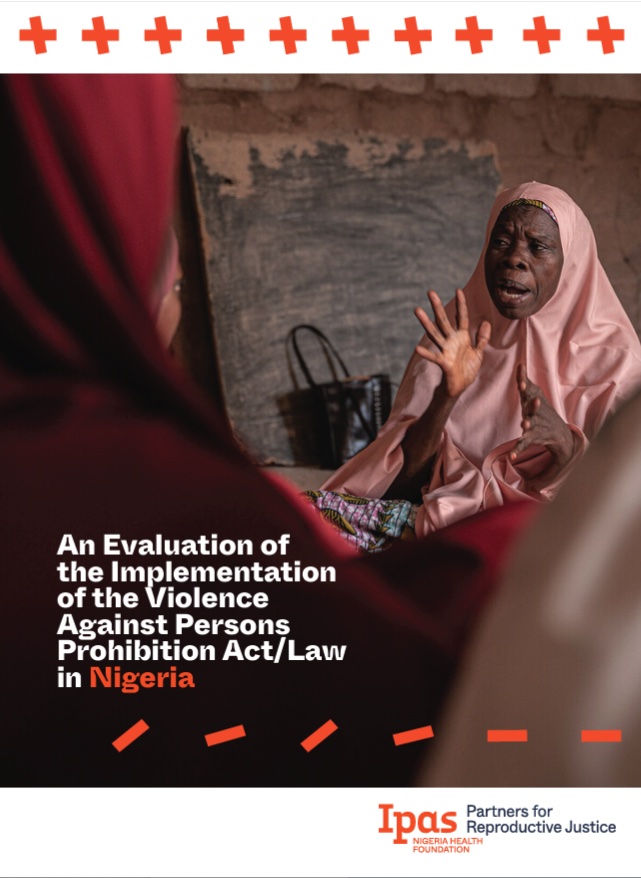
This report evaluates the Violence Against Persons Prohibition (VAPP) Act/Law implementation in Nigeria.
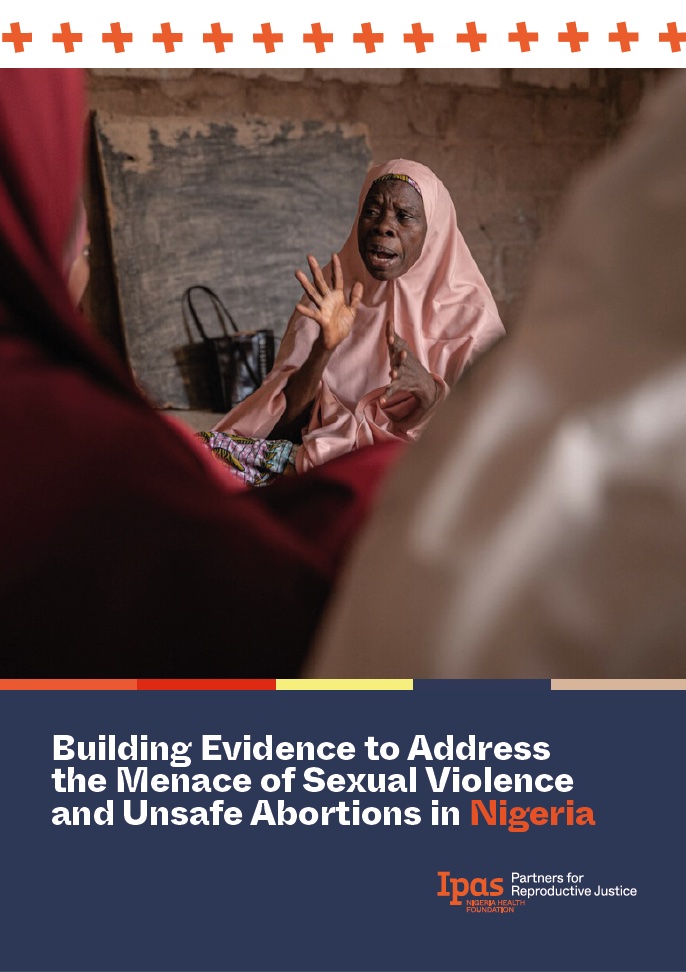
Gender-based violence (GBV) is a serious violation of human rights and a life-threatening health and protection issues. Gender-based violence can include sexual, physical, mental, and economic harm.
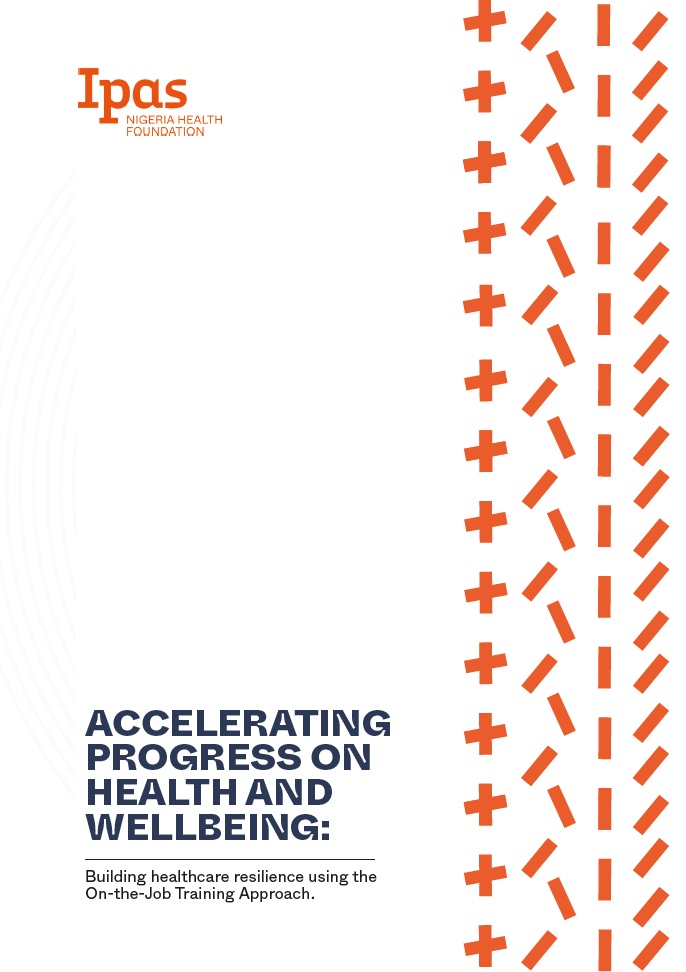
Building healthcare resilience using the On-the-Job Training Approach.
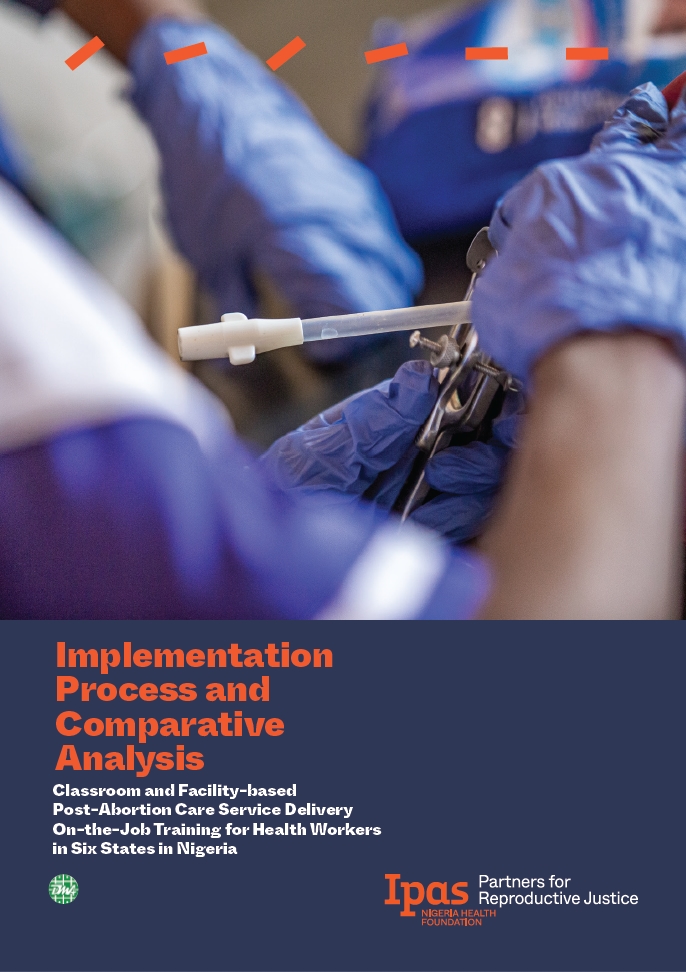
Implementation Process and Comparative Analysis of Classroom and Facility-based Post Abortion Care Service Delivery on the Job Training for Health workers in Six States in Nigeria
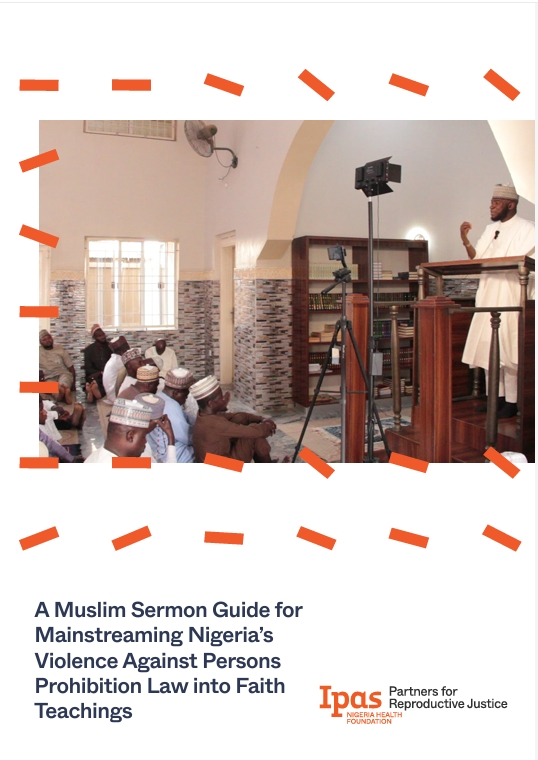
In Nigeria, a nation renowned for its rich cultural and religious diversity, fostering unity and understanding among its Muslim communities is not only essential but a sacred duty. In this spirit of unity and shared responsibility, we present to you a sermon guide deeply rooted in the teachings of Christianity and Islam, carefully woven into the fabric of Nigeria’s Violence Against Persons Prohibition (VAPP) Act.
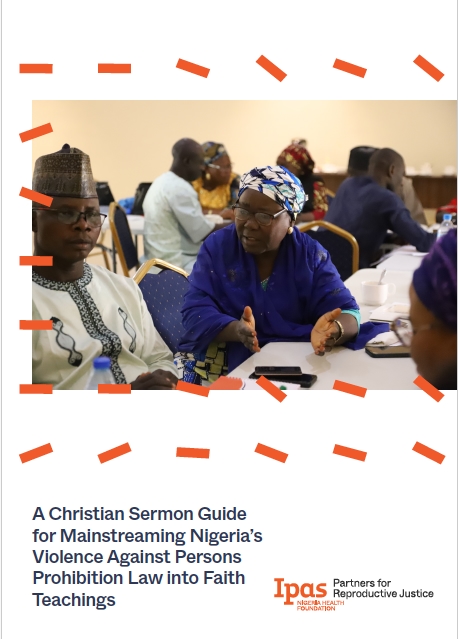
In Nigeria, a nation renowned for its rich cultural and religious diversity, fostering unity and understanding among its Christian communities is not only essential but a sacred duty. In this spirit of unity and shared responsibility, we present to you a sermon guide deeply rooted in the teachings of Christianity and Islam, carefully woven into the fabric of Nigeria’s Violence Against Persons Prohibition (VAPP) Act.
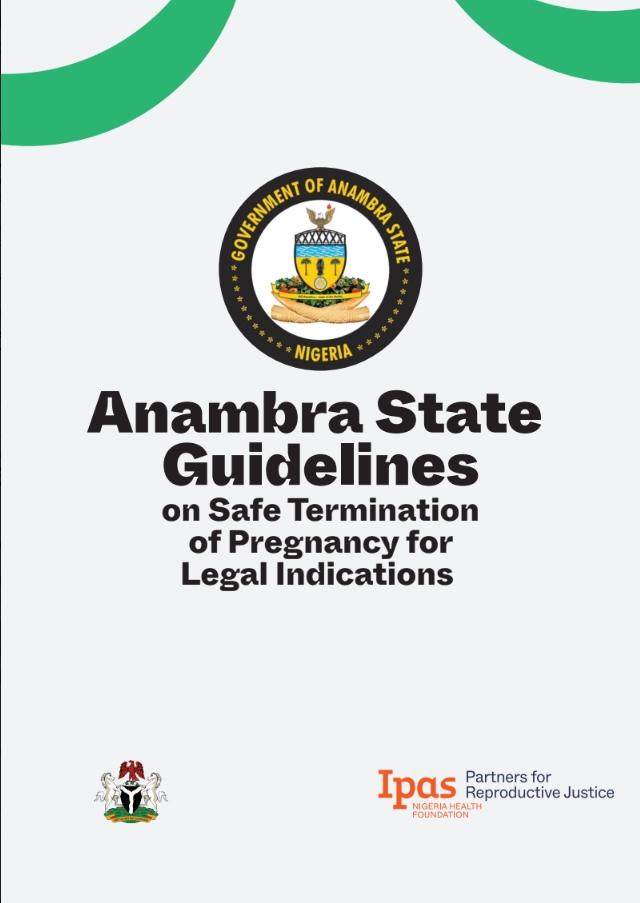
A number of health conditions occurring in pregnancy are incompatible with the wellbeing and survival of the pregnant woman requiring that such pregnancies be terminated to save the life of the woman. These are guidelines.
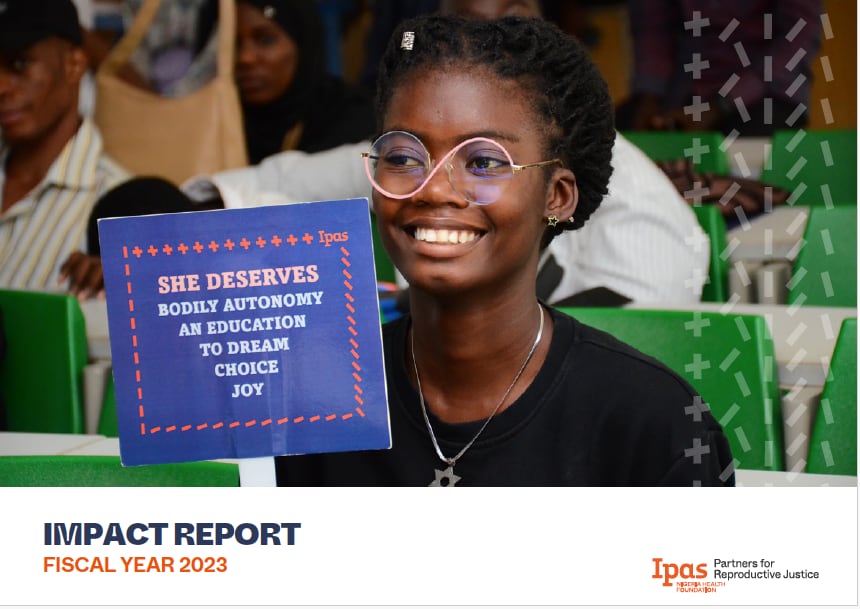
The document is an impact report from Ipas Nigeria Health Foundation detailing their efforts and achievements in advancing reproductive justice and comprehensive sexual reproductive health services in Nigeria during fiscal year 2023.

This document is an impact report from Ipas Nigeria Health Foundation detailing their efforts and achievements in advancing reproductive justice and comprehensive sexual reproductive health services in Nigeria during fiscal year 2022.
